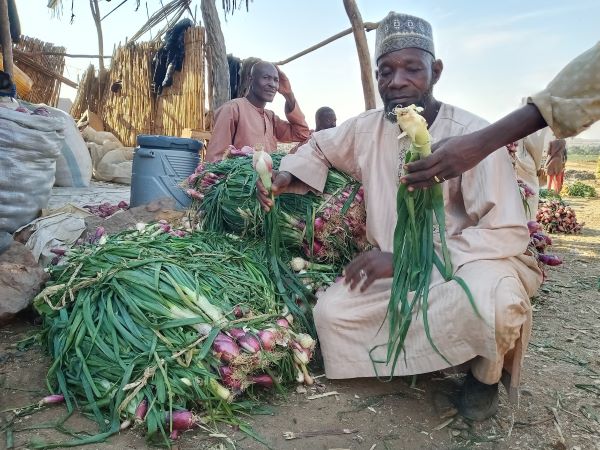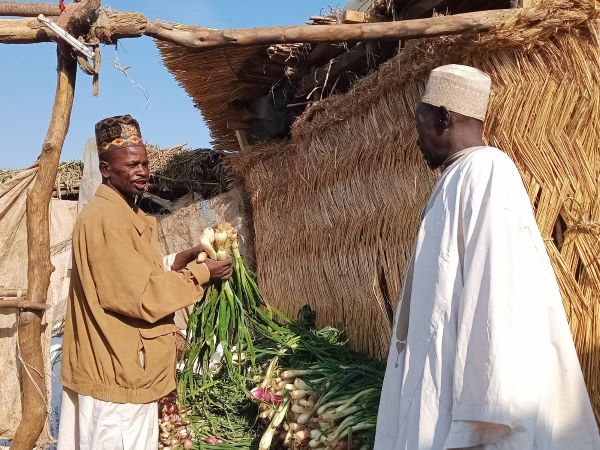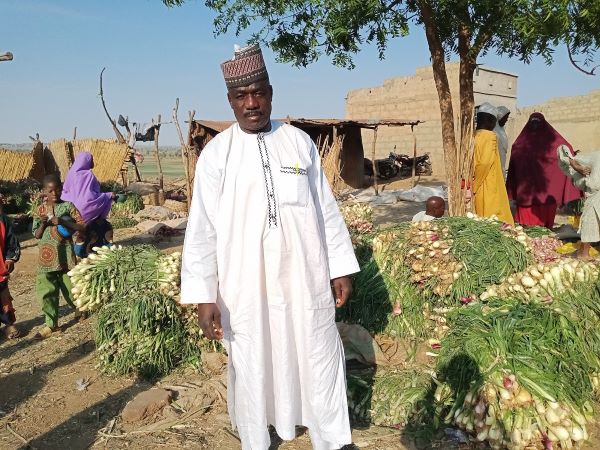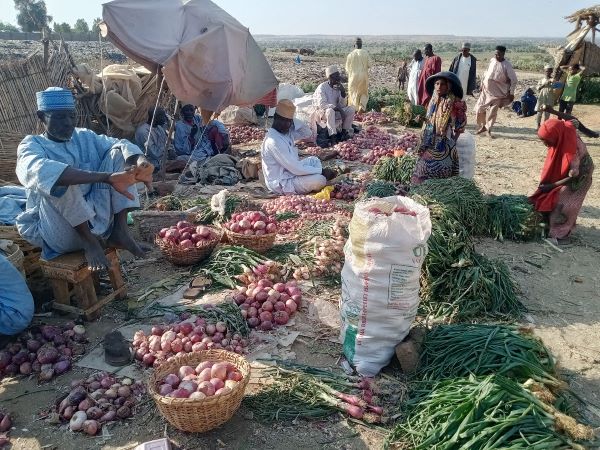Onion farming is a cornerstone of the economy in Sokoto State, located in the northwest region of Nigeria. It employs thousands of young people and contributes significantly to the socioeconomic development of both the state and the country as a whole.
Local government areas (LGAs) such as Wamakko, Dange-Shuni, Gada, Goronyo, and others cultivate and produce large quantities of onions during both the dry and wet farming seasons. These onions are sold locally, and a significant portion is transported to markets across Nigeria and even internationally. As a result, Sokoto State is recognized as the largest onion producer in the country.
However, the 2024 farming season has proven to be disastrous for many onion farmers in Sokoto, largely due to the introduction of a new, low-quality variety of onion seeds. This has resulted in severe financial losses for farmers who invested heavily in these seeds, only to see a fraction of their usual yield.

The Impact on Farmers
Muhammad Sani, an experienced onion farmer from Ɗunɗaye town in Wamakko LGA, has spent decades in the onion business. He sells onions in Sokoto and transports them to cities like Zaria, Onitsha, and Lagos. Sani explained the difficulties caused by the new seed variety, which he and many others were forced to adopt.
“For years, onion farming has been my livelihood,” Sani shared. “But in 2024, things took a turn for the worse. We were introduced to new onion seedlings, but they were not up to standard. The seeds came in two varieties—red and white—but both have very small roots. Locally, we refer to them as ‘Dan Malaysia’ or ‘Balakure,’” he added, his face filled with concern.
According to Sani, this seed has caused widespread damage to the extent that if you plant three farms, you might only get one farm with good onions. The rest are all bad. The worst part is that they didn’t realize the seed was bad until it began to grow, and by then, it was too late for them.

Sani expressed deep concern about the upcoming farming season, unsure whether the same problems would persist. “Last year, we only produced 1% of the onions we usually produce, and that’s a huge loss for us. We need the government’s intervention to ensure we get better quality seeds this year.”
Economic Struggles for Sellers
Nasuru Mai Albasa, an onion seller with 30 years of experience in the business, shared the devastating impact on his sales. “Before, a bag of quality onions would sell for 150,000 Naira, but now, the new variety is worth only 40,000 Naira.”
Nasiru further lamented, “My sales have dropped drastically. Previously, I could make between 100,000 and 150,000 Naira per day, but now I struggle to make even 40,000 to 50,000 Naira.”
He noted that many of their regular customers are also suffering from economic hardship due to the poor quality of the onions, leaving them unable to pay off their debts. This, in turn, has further affected the business.
ALSO READ The secret to profitable onion farming
Uncertainty for the Future
Alhaji Kada, another onion farmer and businessman, expressed uncertainty about the upcoming farming season. “This new variety of onions can take up to seven months to ripen, unlike our usual onions, which take just 100 days,” Kada explained. “This new variety only has long leaves and is not what we expected. We can’t even distinguish between the good and bad seeds, which leaves us in a state of uncertainty.”

Kada also criticized the reliance on market seeds, advising farmers to plant their own seeds to avoid the influx of substandard varieties. He emphasized the importance of government intervention, calling for the provision of quality seeds and resources to support farmers, particularly considering the large number of youth who depend on onion farming for employment.
Government Should Support Us
Both farmers and traders have made it clear that they need immediate support from the government. “We are the largest onion producers in Nigeria, yet we are now facing a major crisis due to poor seed quality and fraudulent practices,” Sani said. “The government must step in to provide better seeds and help us recover from this devastating loss. Without their support, many farmers will be forced to abandon their farms, and this will have long-term consequences for the state’s economy.”
However, they asked the government to provide capital to help them recover from their losses and to ensure that such a situation does not occur in the future. Considering the large number of people relying on onion farming for their livelihoods, the need for intervention is urgent.

When contacted, the Vice Chairman of the National Onion Processors and Marketers Association, Sokoto State chapter, Alhaji Murtala Mai Albasa, said they are currently taking proactive measures, such as orienting and sensitizing their members about the bad variety of seed introduced to them.
The Vice Chairman, who stressed that they had already handed over the person who brought the bad seed to them to security operatives, also advised all their members to either buy quality seeds (tin seed) or cultivate their own seeds and plant them after germination.
Despite the significant challenges, a report showed that Nigeria exported onions valued at 107.9 billion Naira between April and September 2024.

